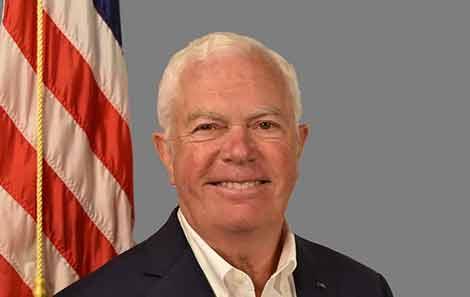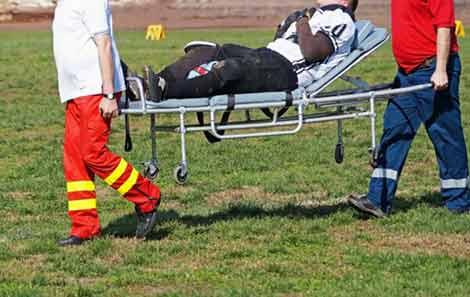Sudden Cardiac Arrest
Make an Appointment
For the Charlottesville area:
For Northern Virginia:
A sudden cardiac arrest is an emergency. It means the heart has stopped beating right. It can't pump blood around the body, so blood isn't reaching the brain or other organs. If you have a cardiac arrest, you need help immediately.
When someone has a cardiac arrest, they:
- Collapse and pass out
- May not be breathing or may be gasping for air
- Don't respond
- May not have a pulse
What To Do During Sudden Cardiac Arrest
Most cardiac arrests happen outside of a hospital. That means you may need to give emergency care. The person might die without it.
If you see someone collapse:
- Try to get their attention by shouting and tapping them
- Check if they're breathing and have a pulse
- If they don't respond and aren't breathing normally, call 911 for help right away
Starting CPR (cardiopulmonary resuscitation) or using an automatic defibrillator (AED) can save someone's life in cardiac arrest. If you need to give CPR:
- You don't need training – you can do it
- It's "hands-only" – you don't need to give breaths
- Push down hard and fast in the center of the chest
- Time your pushes to the beat of the song “Stayin’ Alive” (100-120 pushes a minute)
If you find an AED, listen carefully to the AED's instructions. It gives the person an electric shock to help their heart start working again. There are apps you can download to show where AEDs are found.

Tom Gets a Second Chance
Few people survive cardiac arrest outside a hospital. When a heart attack stopped Tom Coyle's heart, CPR given by his wife and UVA Health's heart team putting in the smallest heart pump saved his life.
Don’t Ignore the Signs of Rhythm Issues
Treatment for Sudden Cardiac Arrest
If you're at the hospital with cardiac arrest, you may be treated with:
- Targeted temperature management (TTM) protects your brain by keeping your temperature low
- Oxygen therapy can help get enough oxygen into your body
- Extracorporeal membrane oxygenation (ECMO) treatment adds oxygen to your blood through an artificial lung
We'll also run tests to see what caused your cardiac arrest. We can then come up with a plan to treat those causes.
Preventing Cardiac Arrest
If you're at high risk, a heart device can help. We can put in an implantable cardioverter defibrillator (ICD). The ICD device monitors your heart and delivers an electrical shock when you need it.
What is Cardiac Arrest?
Sudden cardiac arrest happens when there's a problem with your heart's electrical system. Your whole heart suddenly stops pumping. Every year, around 325,000 people in the U.S. die from sudden cardiac arrest. But many of these deaths can be avoided.
Cardiac Arrest Vs Heart Attack
Cardiac arrest isn't the same as a heart attack. Both are emergencies. But they happen in different ways.
A heart attack happens when the arteries that give your heart blood are blocked. Your heart muscle isn't getting enough blood, which means it isn't getting enough oxygen. That causes damage to the muscle. It stops the heart from pumping like it should. You can think of it as a "plumbing" issue with your heart.
Cardiac arrest happens when the electric signals in your heart don't fire as they should. Your heart doesn't pump the right way. You can think of it as a problem with your heart's "wiring."

Anyone Can Save a Life in Cardiac Arrest
Damar Hamlin had a cardiac arrest in the middle of a football game that shocked viewers. But cardiac arrests are more common than you think. And anyone, even you, can help in this medical emergency.
Why Do Cardiac Arrests Happen?
The most common cause of cardiac arrest is a heart rhythm disorder (arrhythmia) called ventricular fibrillation. It’s when the electric signals that make the heart pump become too fast or uneven. When this happens, the heart can't pump blood to the rest of the body. A defibrillator can save your life by bringing back your heart’s regular rhythm.
Cardiac arrest can also be caused by:
- Coronary artery disease
- A low ejection fraction
- In children, drowning or choking can cause sudden cardiac arrest
Some things that can trigger a cardiac arrest:
- Heavy alcohol use
- Hard physical activity that you aren't used to
- Some kinds of drug use, like cocaine or amphtamines
- Too much caffeine
- Stress
What's an Ejection Fraction?
It's a measure of how well your heart pumps blood.
When filled, a healthy heart pumps 55% or more of its blood out to your body. An ejection fraction of less than 35% means you’re more likely to have sudden cardiac arrest.
Echocardiograms (ECGs) can measure your ejection fraction number. It's a painless test that takes a moving picture of your heart.